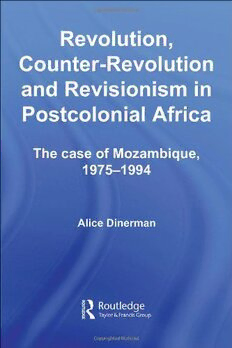
Revolution, Counter-Revolution and Revisionism in Postcolonial Africa: The Case of Mozambique, 1975-1994 (Studies in Modern History) PDF
420 Pages·2006·2.55 MB·English
Most books are stored in the elastic cloud where traffic is expensive. For this reason, we have a limit on daily download.
Preview Revolution, Counter-Revolution and Revisionism in Postcolonial Africa: The Case of Mozambique, 1975-1994 (Studies in Modern History)
Description:
This groundbreaking study investigates defining themes in the field of social memory studies as they bear on the politics of post-Cold-War, post-apartheid Southern Africa. Examining the government’s attempts to revise postcolonial Mozambique’s traumatic past with a view to negotiating the present, Alice Dinerman stresses the path-dependence of memory practices while tracing their divergent trajectories, shifting meanings and varied combinations within ruling discourse and performance. Central themes include: * the interplay between past and present* the dialectic between remembering and forgetting* the dynamics between popular and official memory discourses* the politics of acknowledgement. Dinerman’s original analysis is essential reading for students of modern Africa; the sociology of memory; Third World politics and post-conflict societies.
See more
The list of books you might like
Most books are stored in the elastic cloud where traffic is expensive. For this reason, we have a limit on daily download.
